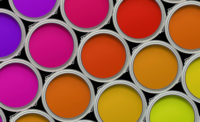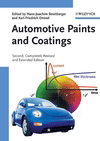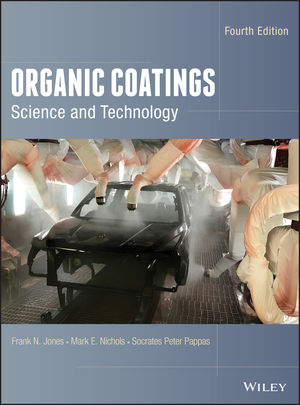RPM Reports Fiscal 2017 Second-Quarter Results

MEDINA, OH – RPM International Inc. reported a 3.0% increase in sales and a net loss of $70.9 million for its fiscal 2017 second quarter ended Nov. 30, 2016. The quarter’s results included a $188.3 million pre-tax impairment charge related to its Kirker consumer nail enamel business. On an after-tax basis, the charge was $129.2 million, or $0.97 per share. The second quarter also included a charge of $12.3 million, or $0.09 per share, which had no tax impact, related to the decision to exit the Flowcrete polymer flooring business in the Middle East.
In the second quarter, net sales of $1.19 billion were up 3.0% over the $1.16 billion reported a year ago. Organic sales improved 3.8% and acquisition growth added 1.7%. Foreign currency translation reduced sales by 2.5%. The loss in the fiscal 2017 second quarter of $70.9 million compares to net income of $83.4 million in the fiscal 2016 second quarter. The fiscal 2017 second-quarter loss of $0.54 per diluted share compares to earnings per diluted share of $0.62 in the fiscal 2016 second quarter. Loss before income taxes of $106.9 million decreased from income before income taxes (IBT) of $120.3 million reported in the fiscal 2016 second quarter. RPM's consolidated loss before interest and taxes of $86.4 million decreased from consolidated earnings before interest and taxes (EBIT) of $141.6 million reported in the fiscal 2016 second quarter.
The fiscal 2017 second quarter included the $188.3 million Kirker impairment charge and the $12.3 million charge related to the decision to exit Flowcrete Middle East, while the fiscal 2016 second quarter included the previously disclosed $14.5 million reversal of Kirker’s final earnout accrual into income. Excluding these items, earnings per diluted share declined 5.5% from $0.55 per share to $0.52 per share, while consolidated EBIT of $114.2 million decreased 10.2% from $127.1 million last year.
“We are pleased with the sales growth in the second quarter across each of our three segments in light of economic conditions and in comparison to our peer companies’ recent performance. Even in our more global economically challenged industrial segment businesses, we are generating solid growth in local currencies. Translational and transactional foreign exchange challenges, previously communicated capacity issues in our consumer segment, and higher corporate benefit costs combined to generate lower year-over-year EBIT results, excluding the additional impairment charge and the decision to exit the Flowcrete business in the Middle East. Mid-year restructuring and expense reduction activities and the benefit of first-half acquisitions, along with having addressed the capacity situation at our DAP subsidiary, will allow revenue growth to be better leveraged to our bottom line during the fiscal 2017 fourth quarter and beyond,” stated Frank C. Sullivan, Chairman and Chief Executive Officer.
During the fiscal 2017 second quarter, industrial segment sales increased 1.6%, to $633.4 million from $623.3 million in the fiscal 2016 second quarter. Organic sales improved 2.2%, while acquisition growth added 2.2%. Foreign currency translation reduced sales by 2.8%. IBT for the industrial segment declined 21.4% to $50.3 million, from $64.0 million in the fiscal 2016 second quarter. Industrial segment EBIT declined 20.4% to $52.2 million, from $65.6 million in the fiscal 2016 second quarter. Industrial segment EBIT included the impact of a $12.3 million charge related to the decision to exit the Flowcrete polymer flooring business in the Middle East. Excluding this charge, industrial segment EBIT was down 1.7% to $64.5 million from $65.6 million last year, due to unfavorable mix.
“Industrial sales remain choppy by geography and have continued to be negatively impacted by weakness in the global oil and gas and heavy equipment industries, along with continued currency headwinds. In Europe, sales were down 1.0% in actual dollars, but up 6.3% in local currencies, with solid results in the U.K. In Latin America, sales were down in the low single digits in both actual results and local currencies. Our businesses serving the U.S. commercial construction markets continue to see solid sales growth in the mid-single-digit range,” Sullivan stated.
Second-quarter sales for the specialty segment increased 5.7%, to $183.6 million from $173.6 million in the fiscal 2016 second quarter. Organic growth was 5.2%, while acquisitions added 2.5%. Foreign currency translation reduced sales by 2.0%. IBT for the specialty segment increased 10.2% to $31.2 million, from $28.3 million in the fiscal 2016 second quarter. Specialty segment EBIT improved 10.6%, to $31.0 million from $28.1 million a year ago.
“Most of our core specialty businesses, particularly U.S.-based restoration and exterior insulation and finish systems product lines, had solid performance in the quarter. The specialty segment also benefited from several recent smaller acquisitions,” Sullivan stated.
RPM’s fiscal 2017 second-quarter consumer segment sales increased 4.1%, to $373.8 million from $359.1 million a year ago. Organic sales increased 5.8%, while acquisition growth added 0.6%. Foreign currency translation reduced sales by 2.3%. The consumer segment had a loss before income taxes of $140.6 million, compared to IBT of $65.4 million in the fiscal 2016 second quarter. The segment reported a loss before interest and taxes of $140.6 million, which was a decline from EBIT of $65.4 million reported last year.
As previously disclosed, fiscal 2016 second-quarter EBIT included the $14.5 million reversal of Kirker’s final earnout accrual into income. During the current year, certain negative trends in the Kirker business led to a loss of several customers and market share and a downward revision to long-term forecasts, which were determined to represent an impairment triggering event, and, after additional testing, resulted in an impairment charge totaling $188.3 million. Excluding these Kirker items, consumer segment EBIT declined 6.2%, from $50.9 million in fiscal 2016 to $47.7 million in the fiscal 2017 second quarter, principally due to a decline in Kirker’s current operating results.
“During the quarter, our core U.S. consumer businesses, excluding Kirker, performed very well, and capitalized on market share gains, a strengthening domestic housing market and good growth by our retail accounts to deliver solid organic growth. Sales in these businesses were up 6.4%, net of unfavorable currency translation. Supply issues in caulks and sealants were resolved by the end of the quarter, while significant capital investments are in process to increase capacity. Certain inefficiencies lingered in the second quarter that related to the caulks and sealants supply issues, which translated into a less favorable conversion to EBIT than would normally be the case. Both Rust-Oleum and DAP invested heavily in advertising and promotional activities in the quarter to support their brands and new product placements achieved during the past year,” said Sullivan.
Fiscal 2017 first-half net sales improved 1.8%, to $2.44 billion from $2.40 billion during the first six months of fiscal 2016. Net income declined to $41.8 million from $183.2 million in the fiscal 2016 first half. Diluted earnings per share were $0.32, down from $1.36 a year ago. IBT of $41.6 million declined 84.1% from $262.5 million in the fiscal 2016 first half. EBIT of $81.0 million declined 73.2% from $302.2 million reported last year. Excluding the Kirker items in both years and the Flowcrete charge in fiscal 2017, diluted earnings per share were $1.35, an increase of 4.7% from $1.29 last year and consolidated EBIT was $281.6 million, a decrease of 2.1% from $287.7 million last year.
Looking forward, Sullivan noted, “In the industrial segment, we expect continued solid growth for those businesses serving the U.S. commercial construction markets to be partially offset by continued global choppiness and a sluggish global energy sector. We are anticipating growth in our international businesses to be in the low-single-digit range. Despite more difficult currency headwinds with the euro and British pound, industrial segment sales growth for the back half of the fiscal year will be in the low-single-digit range, with the help from recent acquisitions.”
“We continue to expect mid-single-digit range growth in our specialty segment by these predominately U.S.-based niche businesses as they gain market share. In the consumer segment, we are expecting a solid back half to fiscal 2017, with overall growth in the mid-single-digit range, including recent acquisitions,” he stated.
“Due to further declines in the euro and British pound versus the U.S. dollar, we are anticipating an increase in currency headwinds for the fiscal year from our original estimate of $0.06 per share to $0.10 per share, along with an increase in pension expense from our original $0.05 per share to $0.07 per share for the 2017 fiscal year. Recent acquisitions are expected to reduce EPS in the third quarter due to stepped-up inventory and other one-time transaction costs, but be accretive for the fourth quarter. We are anticipating a restructuring charge in Europe in the third quarter of fiscal 2017, which will reduce diluted earnings per share by approximately $0.05 per share. As a result, we are revising our EPS full-year guidance to a range of $1.54 to $1.64 per diluted share, which includes the $0.09 per share Flowcrete Middle East charge, the $0.94 per share Kirker charge, the third-quarter estimated restructuring charge of $0.05 per share, as well as $0.04 per share of higher currency headwinds and $0.02 per share of higher pension expense,” Sullivan stated.
“Excluding the charge for the Kirker impairment, Flowcrete Middle East exit, and the estimated third-quarter restructuring in Europe, our fiscal 2017 full-year adjusted EPS guidance is $2.62 to $2.72,” stated Sullivan.
The company also announced that its board of directors has declared a regular quarterly cash dividend of $0.30 per share, payable on Jan. 31, 2017 to stockholders of record as of January 16, 2017.
Looking for a reprint of this article?
From high-res PDFs to custom plaques, order your copy today!







